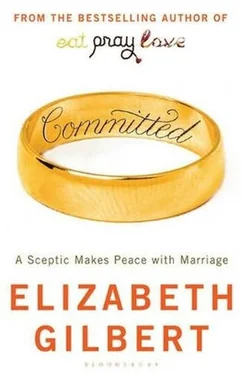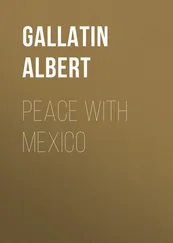My heart sank, almost audibly. Across the tiny room, I could sense Felipe’s heart sinking along with mine, in complete hollow tandem.
In retrospect, it does seem unbelievable that this proposition could possibly have taken me by surprise. Had I never heard of a green card marriage before, for heaven’s sake? Maybe it also seems unbelievable that-given the urgent nature of our circumstances-the suggestion of matrimony brought me distress instead of relief. I mean, at least we’d been given an option, right? Yet the proposition did take me by surprise. And it did hurt. So thoroughly had I barred the very notion of marriage from my psyche that hearing the idea spoken aloud now felt shocking. I felt mournful and sucker punched and heavy and banished from some fundamental aspect of my being, but most of all I felt caught. I felt we had both been caught. The flying fish and the diving bird had been netted. And my naivete, not for the first time in my life, I’m afraid, struck me across the face like a wet slap: Why had I been so foolish as to imagine that we could get away with living our lives as we pleased forever?
Nobody spoke for a while, until the Homeland Security interrogation officer, regarding our silent faces of doom, asked, “Sorry, folks. What seems to be the problem with this idea?”
Felipe took off his glasses and rubbed his eyes-a sign, I knew from long experience, of utter exhaustion. He sighed, and said, “Oh, Tom, Tom, Tom…”
I had not yet realized that these two were on a first-name basis, though I suppose that’s bound to happen during a six-hour interrogation session. Especially when the interrogatee is Felipe.
“No, seriously-what’s the problem?” asked Officer Tom. “You two have obviously been cohabiting already. You obviously care about each other, you’re not married to anyone else…”
“What you have to understand, Tom,” explained Felipe, leaning forward and speaking with an intimacy which belied our institutional surroundings, “is that Liz and I have both been through really, really bad divorces in the past.”
Officer Tom made a small noise-a sort of soft, sympathetic “Oh…” Then he took off his own glasses and rubbed his own eyes. Instinctively, I glanced at the third finger of his left hand. No wedding ring. From that bare left hand and from his reflexive reaction of tired commiseration I made a quick diagnosis: divorced.
It was here that our interview turned surreal.
“Well, you could always sign a prenuptial agreement,” Officer Tom suggested. “I mean, if you’re worried about going through all the financial mess of a divorce again. Or if it’s the relationship issues that scare you, maybe some counseling would be a good idea.”
I listened in wonder. Was a deputy of the United States Department of Homeland Security giving us marital advice? In an interrogation room? In the bowels of the Dallas/Fort Worth International Airport?
Finding my voice, I offered this brilliant solution: “Officer Tom, what if I just found a way to somehow hire Felipe, instead of marrying him? Couldn’t I bring him to America as my employee, instead of my husband?”
Felipe sat up straight and exclaimed, “Darling! What a terrific idea!”
Officer Tom gave us each an odd look. He asked Felipe, “You would honestly rather have this woman as your boss than your wife?”
“Dear God, yes!”
I could sense Officer Tom almost physically restraining himself from asking, “What the hell kind of people are you?” But he was far too professional for anything like that. Instead, he cleared his throat and said, “Unfortunately, what you have just proposed here is not legal in this country.”
Felipe and I both slumped again, once more in complete tandem, into a depressed silence.
After a long spell of this, I spoke again. “All right,” I said, defeated. “Let’s get this over with. If I marry Felipe right now, right here in your office, will you let him into the country today? Maybe you have a chaplain here at the airport who could do that?”
There are moments in life when the face of an ordinary man can take on a quality of near-divinity, and this is just what happened now. Tom-a weary, badge-wearing, Texan Homeland Security officer with a paunch-smiled at me with a sadness, a kindness, a luminous compassion that was utterly out of place in this stale, dehumanizing room. Suddenly, he looked like a chaplain himself.
“Oh no-o-o…,” he said gently. “I’m afraid things don’t work that way.”
Looking back on it all now, of course I realize that Officer Tom already knew what was facing Felipe and me, far better than we ourselves could have known. He well knew that securing an official United States fiance visa, particularly after a “border incident” such as this one, would be no small feat. Officer Tom could foresee all the trouble that was now coming to us: from the lawyers in three countries-on three continents, no less-who would have to secure all the necessary legal documents; to the federal police reports that would be required from every country in which Felipe had ever lived; to the stacks of personal letters, photos, and other intimate ephemera which we would now have to compile to prove that our relationship was real (including, with maddening irony, such evidence as shared bank accounts-details we’d specifically gone through an awful lot of trouble in our lives to keep separated); to the fingerprinting; to the inoculations; to the requisite tuberculosis-screening chest X-rays; to the interviews at the American embassies abroad; to the military records that we would somehow have to recover of Felipe’s Brazilian army service thirty-five years earlier; to the sheer expanse and expense of time that Felipe now would have to spend out of the country while this process played itself out; to-worst of all-the horrible uncertainty of not knowing whether any of this effort would be enough, which is to say, not knowing whether the United States government (behaving, in this regard, rather much like a stern, old-fashioned father) would ever even accept this man as a husband for me, its jealously guarded natural-born daughter.
So Officer Tom already knew all that, and the fact that he expressed sympathy toward us for what we were about to undergo was an unexpected turn of kindness in an otherwise devastating situation. That I never, prior to this moment, imagined myself praising a member of the Department of Homeland Security in print for his personal tenderness only highlights how bizarre this whole situation had become. But I should say here that Officer Tom did us one other kind deed, as well. (That is, before he handcuffed Felipe and led him off to the Dallas county jail, depositing him for the night in a cell filled with actual criminals.) The gesture that Officer Tom made was this: He left me and Felipe alone together in the interrogation room for two whole minutes, so that we could say our good-byes to each other in privacy.
When you have only two minutes to say good-bye to the person you love most in the world, and you don’t know when you’ll see each other again, you can become logjammed with the effort to say and do and settle everything at once. In our two minutes alone in the interrogation room, then, we made a hasty, breathless plan. I would go home to Philadelphia, move out of our rented house, put everything into storage, secure an immigration lawyer and start this legal process moving. Felipe, of course, would go to jail. Then he would be deported back to Australia-even if, strictly speaking, he wasn’t being legally “deported.” (Please forgive me for using the word “deported” throughout the pages of this book, but I’m still not sure what else to call it when a person gets thrown out of a country.) Since Felipe had no life in Australia anymore, no home or financial prospects, he would make arrangements as quickly as possible to go somewhere cheaper to live-Southeast Asia, probably-and I would join him on that side of the world once I got things rolling on my end. There, we would wait out this indefinite period of uncertainty together.
Читать дальше












